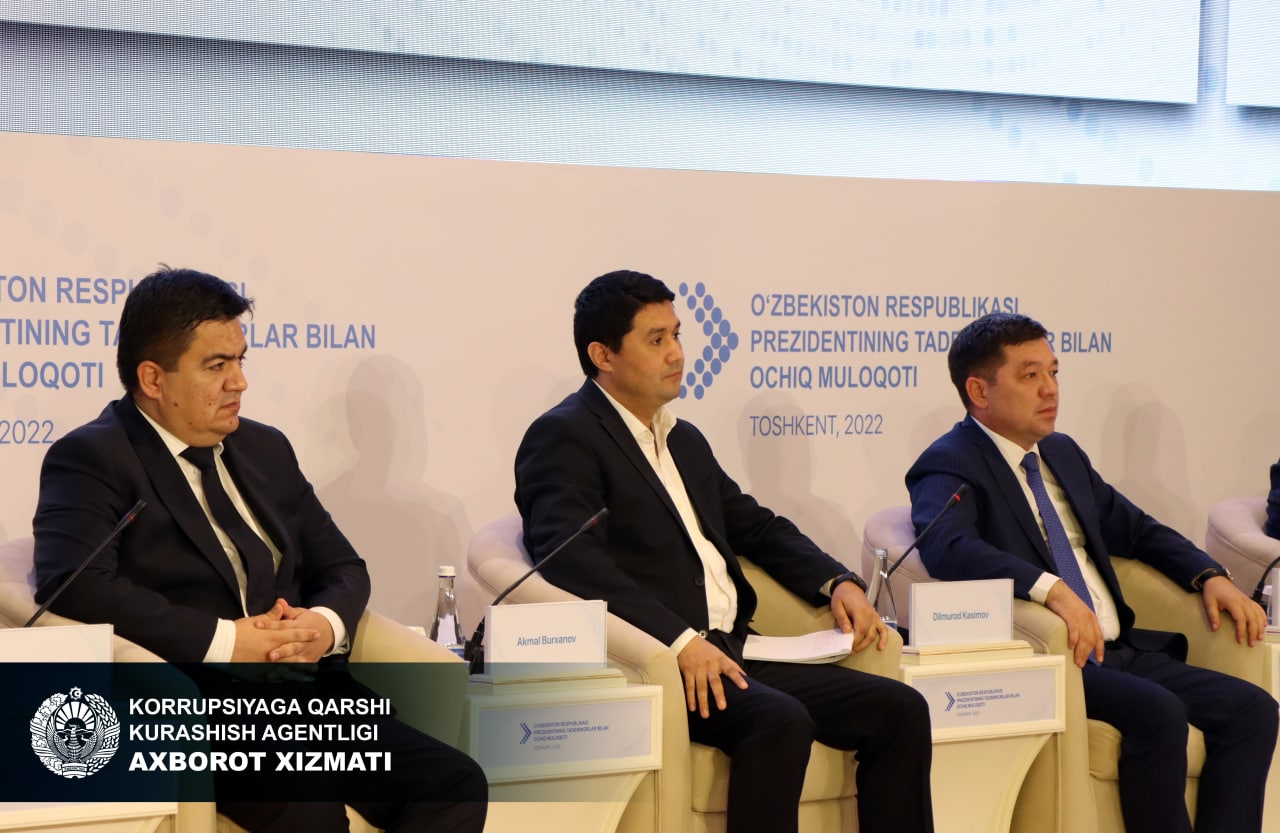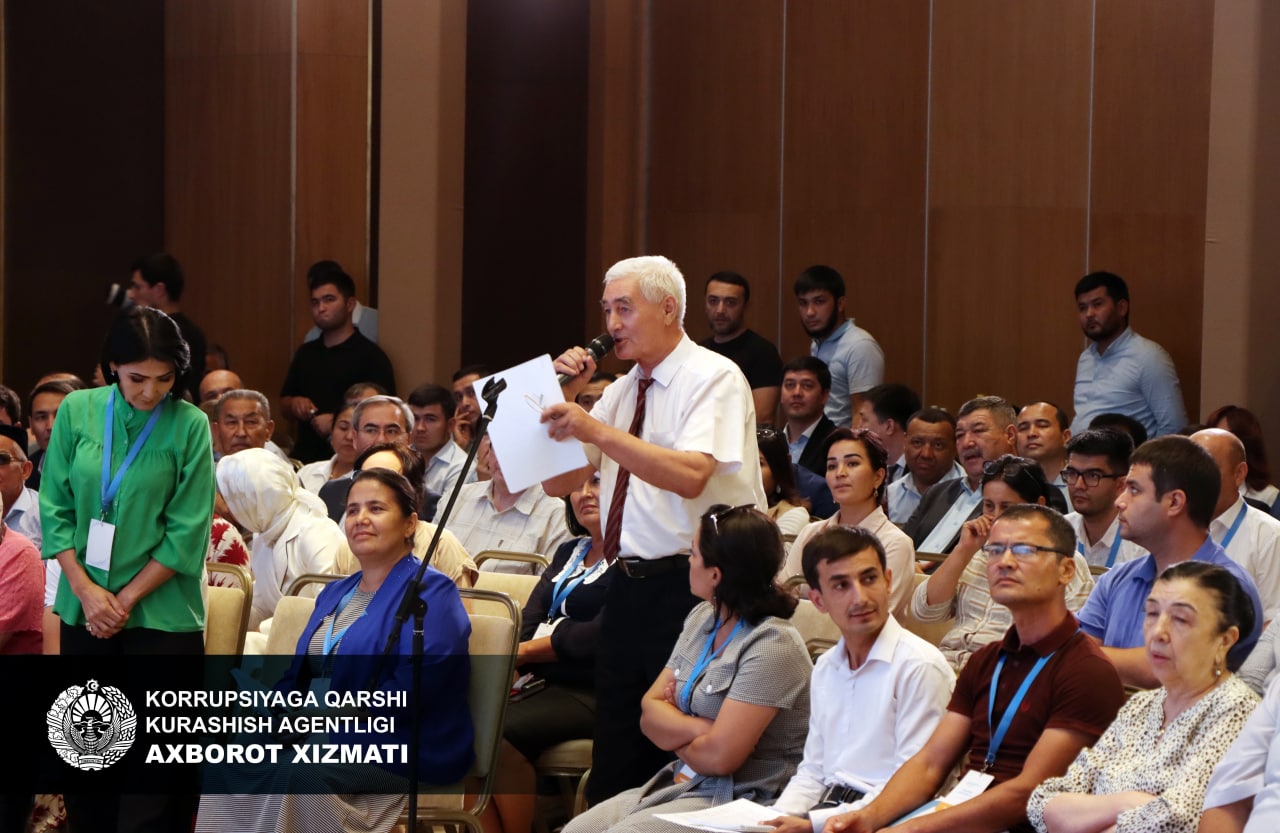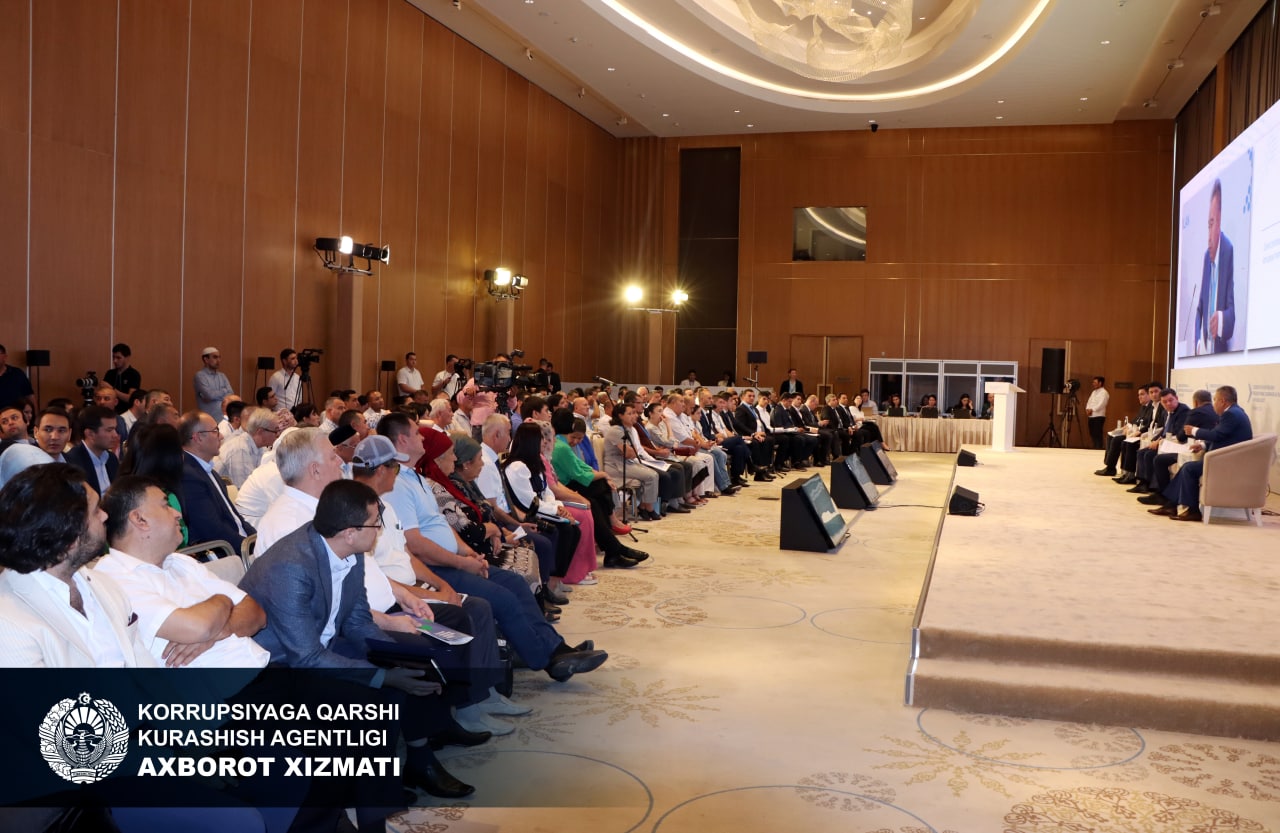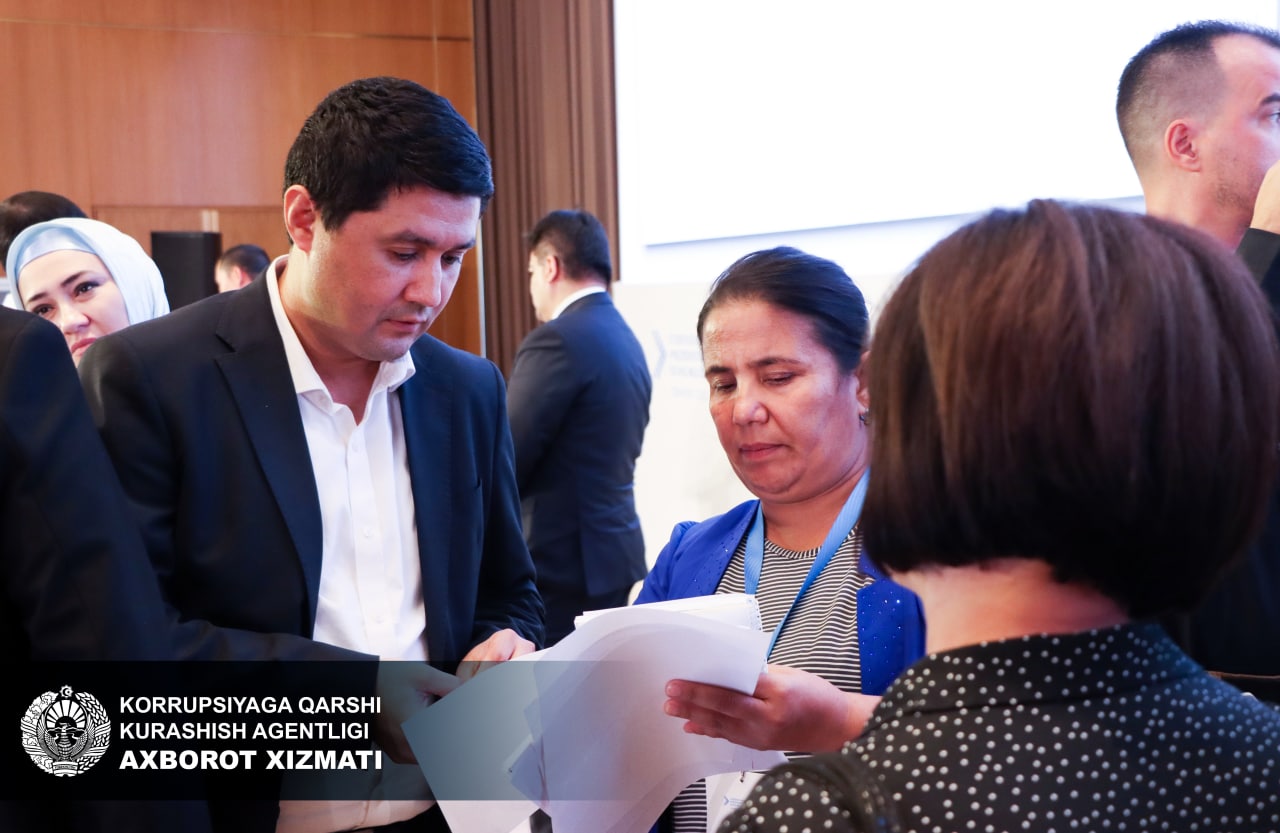Tashkent is hosting a Week of Open Dialogue with Entrepreneurs, which held August 18 a panel session on the theme ‘The activities of government agencies and their interference in the economy, corruption and bureaucratic obstacles.’ Akmal Burkhanov, Director of the Anti-Corruption Agency, attended the event.
At the meeting, the Director of the Agency touched upon measures aimed at eliminating bureaucratic and corruption factors hindering the development of entrepreneurship in the country, and ongoing reforms to reduce the scale of the shadow economy.

As noted, important changes are taking place in the country in the field of preventing corruption along with economic reforms.
Specifically, in order to reduce redundant procedures in the provision of public services, eliminate bureaucracy, and other administrative obstacles, the requirement for 18 types of information and documents specified in more than 450 legal acts was canceled. The procedure for obtaining these documents by the authorized government agency through the Electronic Government platform has been introduced. In 2021, the number of public services provided by the Public Service Centers increased to 166.
All exemptions and benefits associated with the land allocation have been abolished, and the practice of direct and gratuitous allocation of land based on the decision of a head of administration has been completely abolished. The procedure for the sale of land plots through an auction has been established. In the field of entrepreneurship, 132 licensing and permit procedures have been cancelled.

The Agency also established the work of the Internal Anti-Corruption Control Units in more than 117 state and economic administration bodies.
In his speech, Akmal Burkhanov touched upon many other changes aimed at further development of the public procurement system, broad involvement of business entities in the field, ensuring openness and transparency, and fighting corruption in banks.
In particular, in order to eliminate bureaucratic barriers in the construction industry, introduce modern information and communication technologies and ensure transparency, the Transparent Construction National Information System was developed and launched in all regions of the republic in real time from January 1, 2021.

In connection with the implementation of the Roadmap to continue the introduction of international standards into national legislation, the Anti-Corruption Business Charter of Uzbekistan, approved by the National Anti-Corruption Council, was developed.
This Charter includes comprehensive measures aimed at preventing corruption risks in a range of important areas, including managing the financial activities of economic entities, recruiting and training personnel, strengthening internal discipline and legality, public procurement. To date, 189 economic entities are members of the Charter and carry out legal activities.

The Anti-Corruption Agency signed an agreement on mutual cooperation with the Business Ombudsman and the Chamber of Commerce and Industry, aimed at preventing unlawful interference of government agencies in the activities of business entities, ensuring the rights and freedoms of entrepreneurs, and providing practical assistance when faced with corruption factors in their activities.
At the meeting, the appeals of entrepreneurs regarding the obstacles and corruption situations faced by business entities in their activities were heard, appropriate legal consultations and recommendations were given to solve the problems. Appeals and complaints requiring additional study and time were accepted in the prescribed manner.
Press Office
The Anti-Corruption Agency







